Description
English for Health and Social Care Workers is a practical guide for anyone who works in health and social care and who does not speak English as their first language, but needs to develop their communication skills and knowledge.
This self-study guide enables health and social care workers to improve their spoken communication, vocabulary, grammar and report writing skills and to deliver the appropriate levels of care.
With English for Health and Social Care Workers, care providers and employers and workers who do not have English as a first language can be sure of raising their standards of English language skills.
Health and social care workers will gain a better working knowledge of medical terms, different medications and equipment, terms used by service users and policies and procedures used in the care environment.
Former care minister, Norman Lamb said “For people to get the care they want they need to be able to communicate with their care workers. Employers are responsible for recruiting staff that can competently speak and read English but communication will be a key part of the new Care Certificate.”
This book comes with accompanying online audio.
Reviews
“English for Health and Social Care Workers is a combination of ESOL text and human services study guide. It is geared toward non-native English learners in the UK (due to the clear focus on UK accents, dialects, slang, terms and services), who are preparing for roles as frontline caregivers with the elderly, physically and mentally challenged, and mentally ill clients.
This text is highly user-friendly, with memorable and colourful images, up to nine audio tracks per unit, realistic case studies, and sample documents for each scenario, including risk assessments and daily care reports. The ESOL aspect is strongly context-based, and the grammar, vocabulary and medical terminology are introduced in accordance with the topics. Its approach is modern (including vegan, pescatarian and other diets, for example) and client-centred, and the overall focus is on healthy and respectful communication.
The units cover a variety of relevant topics, including manual lifts and transfers, pain and medication, and dealing with incidents of abuse and other challenging situations. For each topic, there are case studies; for example, the ‘In their shoes’ feature encourages students to consider situations from clients’ perspectives and includes necessary essential dialogue. The focus throughout is on the variety of clients’ and caregivers’ cultural perspectives and backgrounds, recognising clients’ emotional states, and using expressions and tone of voice to reassure clients and build rapport. All of this is underscored by the ample, well-performed and detailed audio tracks.
With all due credit, I have used a couple of scenarios from this text to good effect, in 1:1 classes with health care workers, as a way to introduce different accents and expressions while discussing relevant social topics. I recommend that English for Health and Social Care Workers be part of the skills-building curriculum for frontline caregiver training programmes in the UK, and for ESOL teachers whose students are frontline caregivers there. Because of the variety of realistic and emotionally evocative scenarios, students will definitely expand their awareness as well as their personal memory bank of a range of challenging situations.”
Judy Tobin
ESOL Teacher, St. John’s, Canada
IATEFL Voices

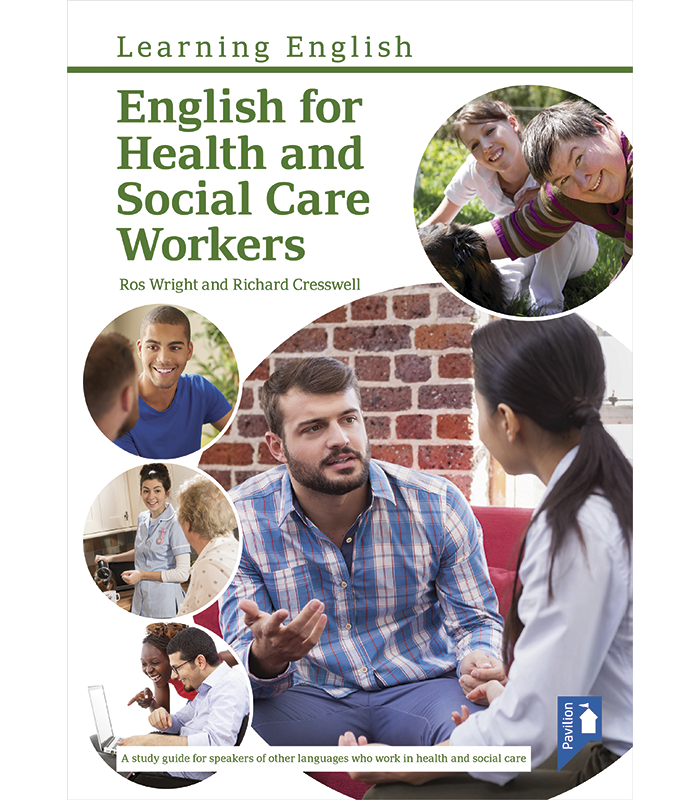
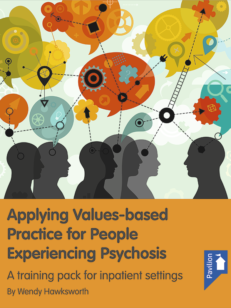
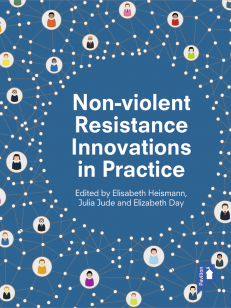
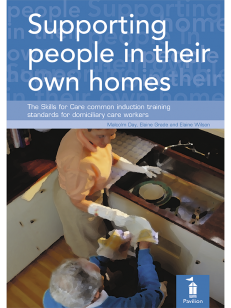
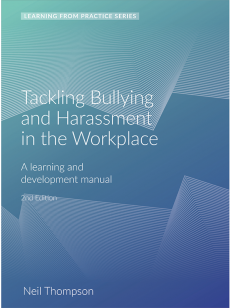
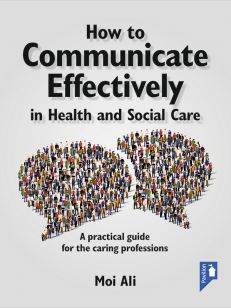
Reviews
There are no reviews yet.